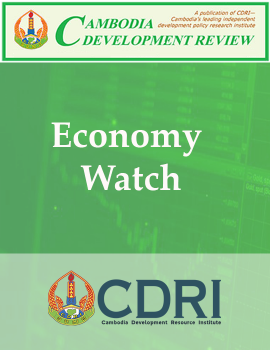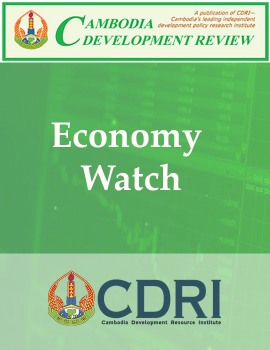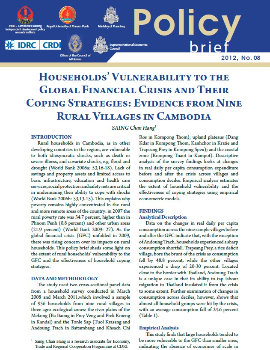Dr SAING Chan Hang
Former Research Fellow
Dr SAING Chan Hang completed his doctoral degree in economics from Oklahoma State University in 2017 and earned his master degree in development economics from Kobe University in 2006. His primary areas of interest include development economics, applied microeconomics, poverty, inequality, trade, investment and growth. His recent publications have been featured in Oxford Development Studies, Review of Development Economics and B.E. Journal of Economic Analysis & Policy. Prior to his PhD study, he was a research associate at the economics unit of CDRI between 2008 and 2012 and a lecturer of economics at Paññāsāstra University of Cambodia (PUC) between 2007 and 2012. He was involved in several research projects, including impact of economic crisis on household welfare in rural Cambodia, impact of China on poverty reduction in Cambodia, binding constraint to economic growth in Cambodia, foreign investment in agriculture in Cambodia, among others. At PUC, he taught principles of microeconomics, principles of macroeconomics, development economics and international economics.
Email : NA
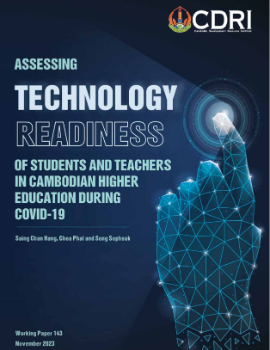
This study examines the technology readiness of students and teachers in Cambodian higher education institutions (HEIs) during the COVID-19 pandemic, which forced a rapid shift to online learning. Using survey data from 370 teachers and 1,338 students across 22 HEIs, the study applies the Technology Readiness Index (TRI 2.0) to assess readiness lev...
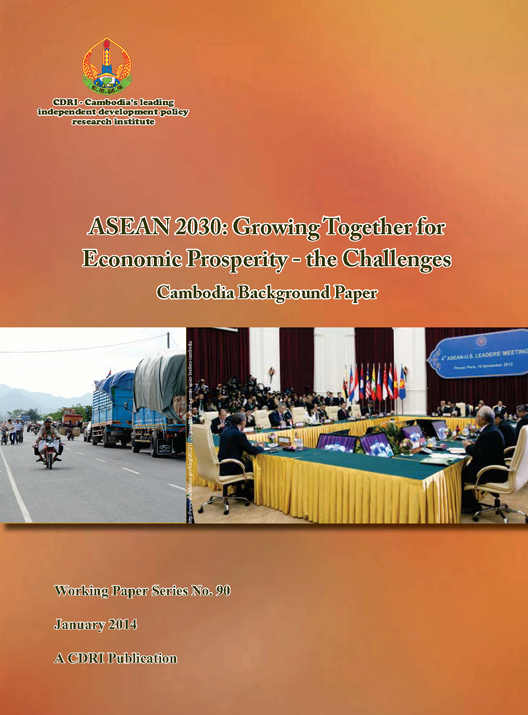
This paper provides a comprehensive analysis of Cambodia’s development trajectory and its aspirations toward 2030 within the ASEAN framework. Despite its post-conflict legacy, Cambodia has achieved notable progress in peace, stability, and economic growth over the past two decades. The study outlines Cambodia’s economic transformation, highligh...
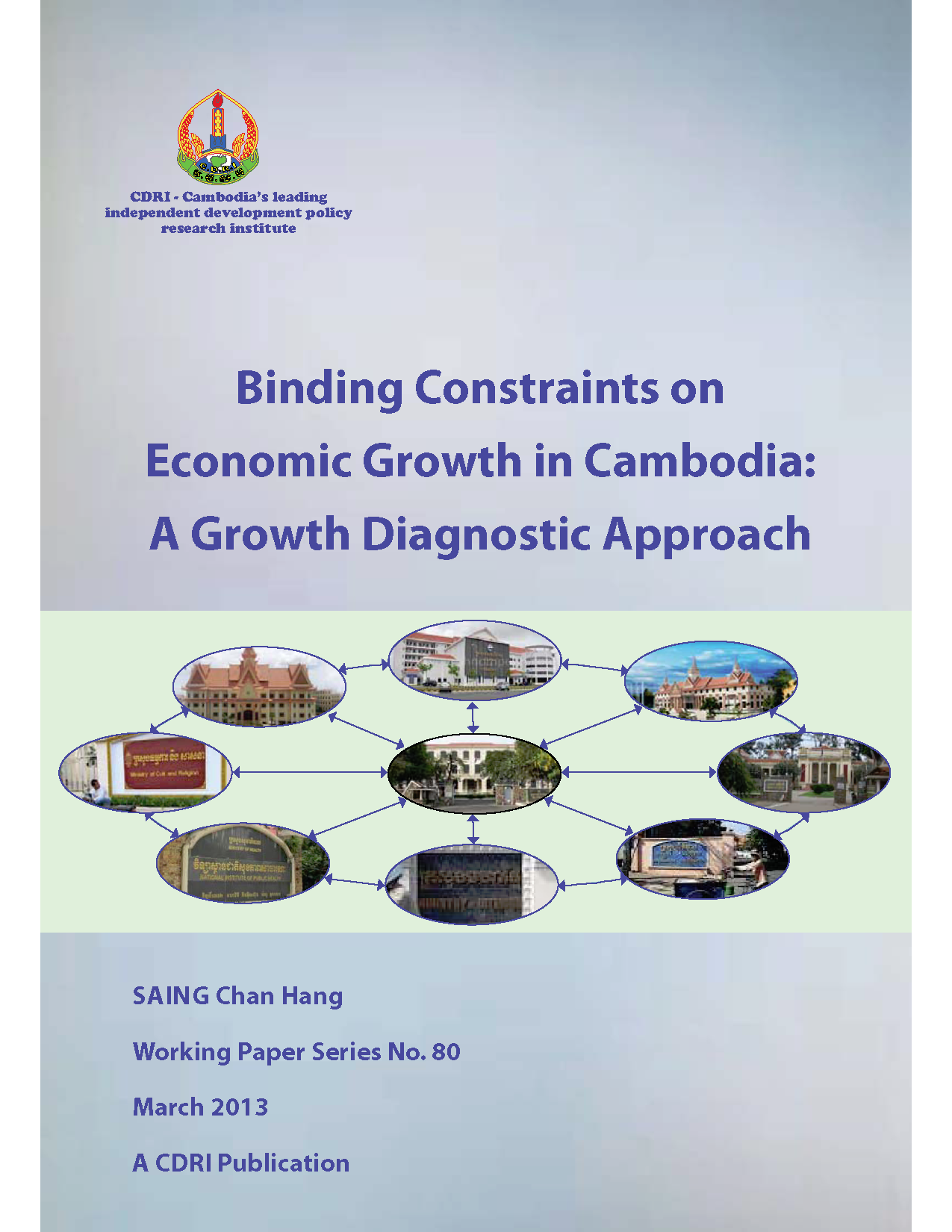
This study applies the growth diagnostic approach, developed by Hausmann, Rodrik and Velasco in 2005, to identify binding constraints on Cambodia’s growth after the crises in 2008 and 2009. Growth was strong during 1999-2009 at an average annual rate of 9.0 percent, but then slowed to 6.7 percent in 2008 and dropped to 0.1 percent in 2009, bef...
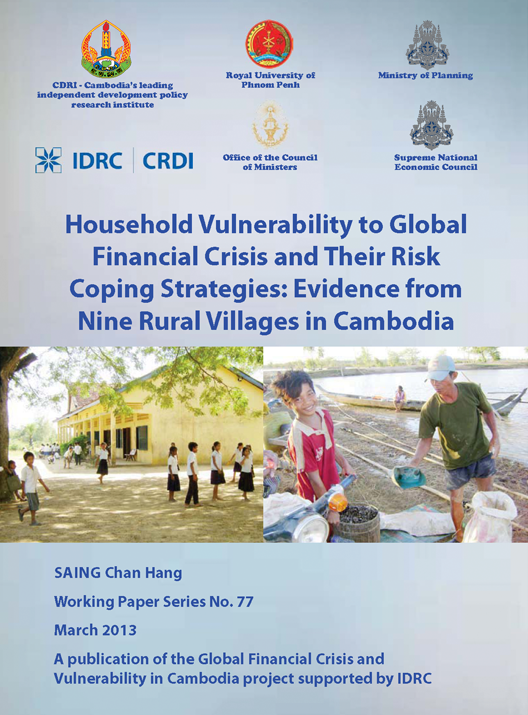
Although economic growth started to show signs of recovery in early 2010, a consumption shortfall was pervasive across Cambodian sample villages and household wealth statuses, reflecting the protracted effect of the global financial crisis up to March 2011. This paper aims to investigate the extent of rural household vulnerability and their use an...
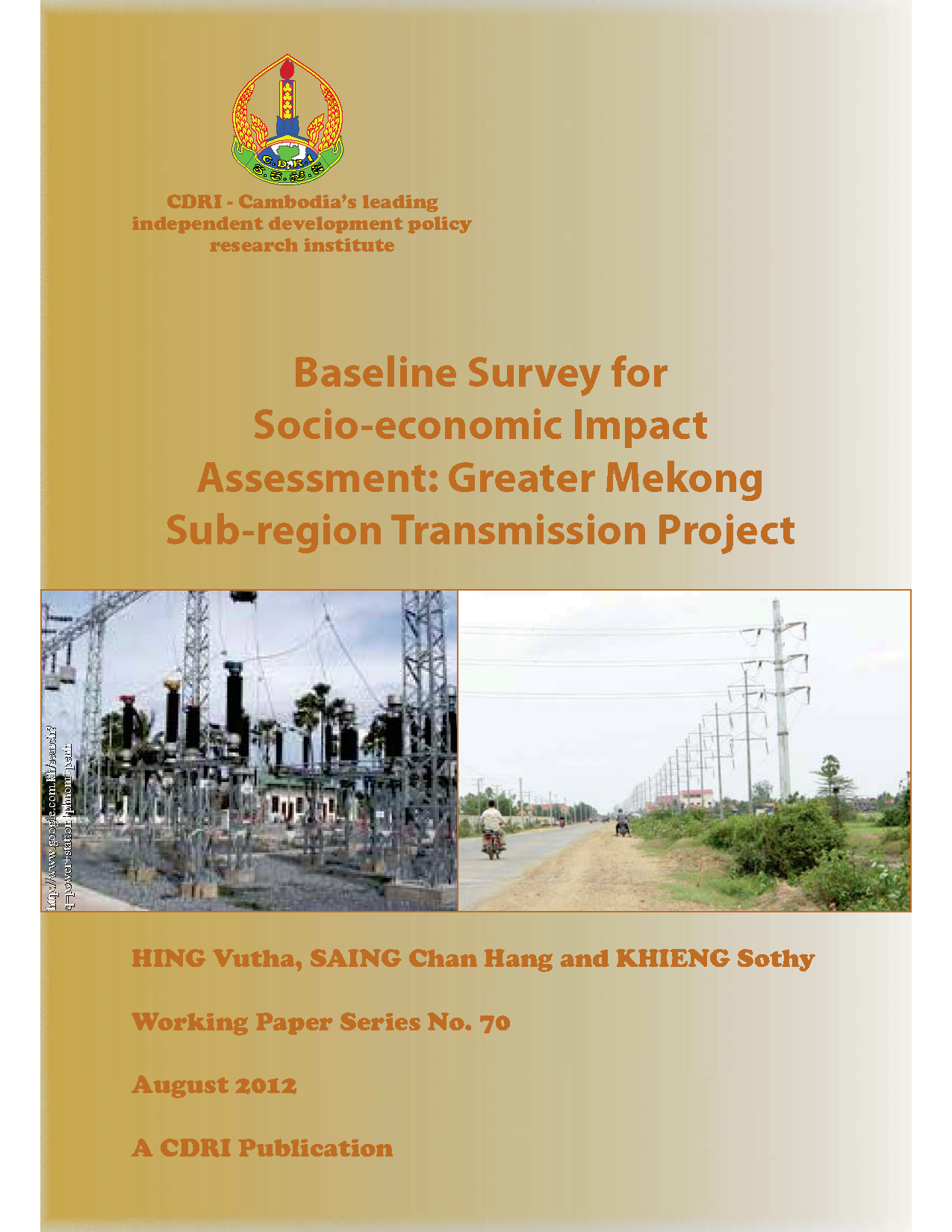
Baseline Survey for Socio-economic Impact Assessment: Greater Mekong Sub-region Transmission Project
This research project represents the first baseline socioeconomic survey that CDRI has conducted for the Greater Mekong Sub-region Transmission Project of Asian Development Bank. The study was designed to develop a set of comprehensive baseline demographic, social and economic as well as energy consumption indicators for the project. The tools...
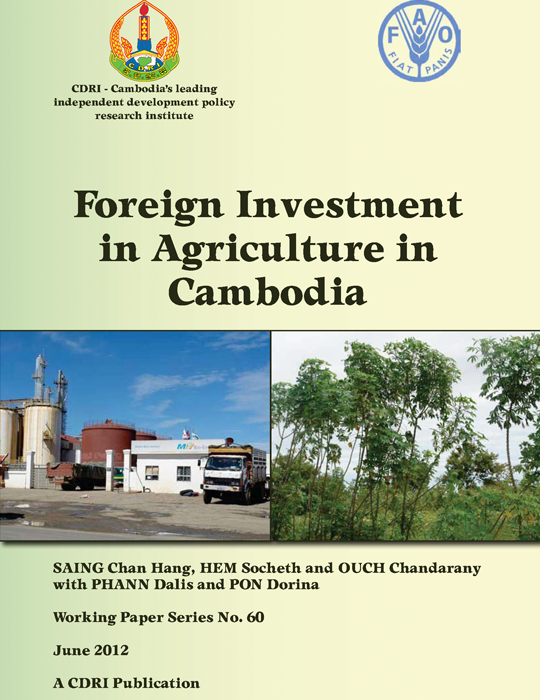
This study investigates the extent, nature, and impact of foreign direct investment (FDI) in Cambodia’s agriculture sector from 2000 to 2010. Despite agriculture’s vital role in Cambodia’s economy—employing a large rural workforce and contributing to foreign exchange earnings—FDI in the sector remains modest, averaging only 6 percent of total i...
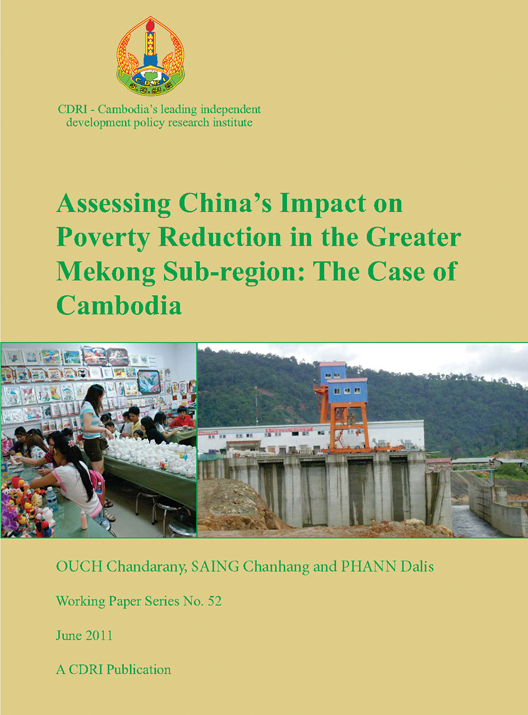
This study investigates the multifaceted impact of China’s economic engagement on poverty reduction in Cambodia, focusing on trade, investment, and official development assistance (ODA). Using a framework developed by Jenkins and Edwards (2004), the paper analyses bilateral trade patterns, the role of Chinese foreign direct investment (FDI), an...
